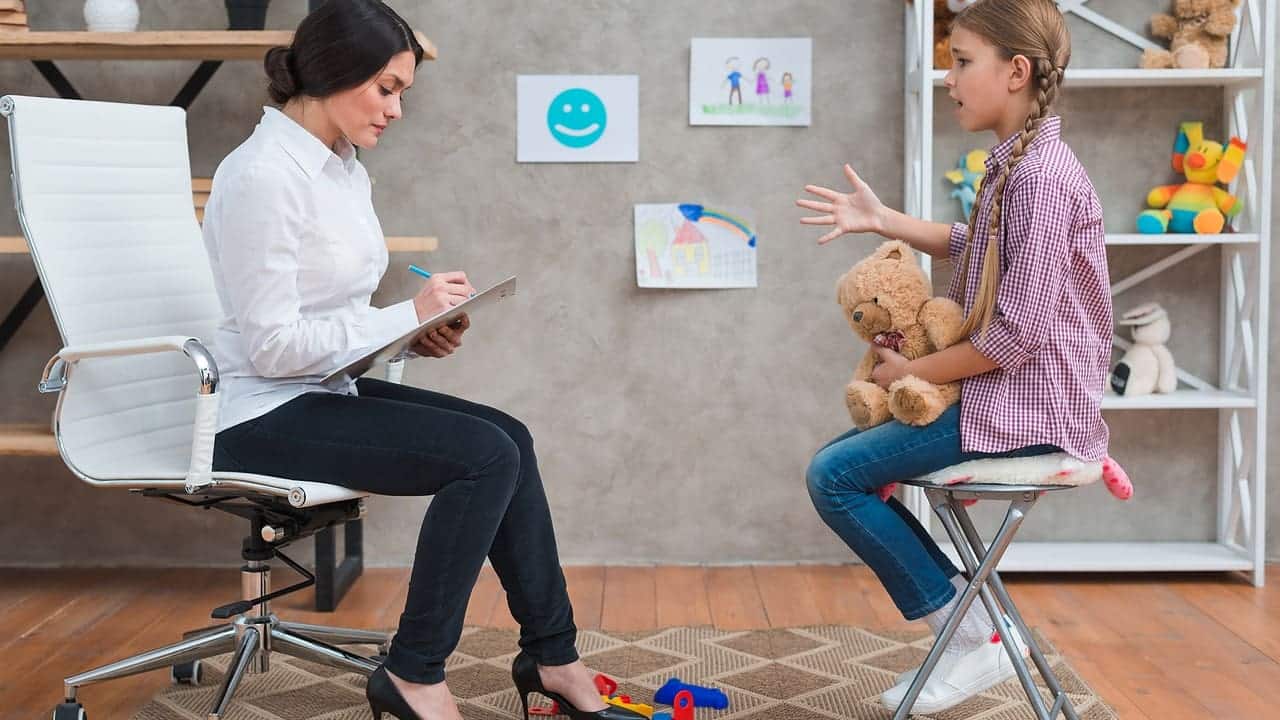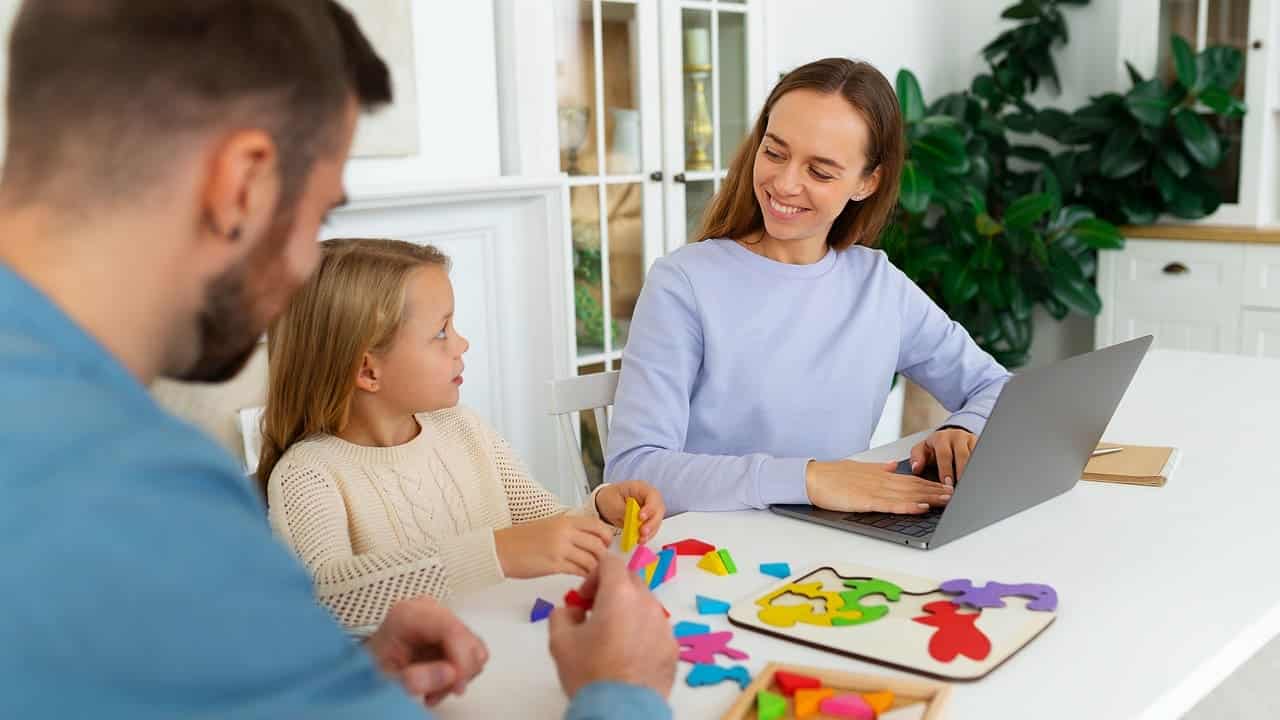What is Pediatric Psychology and How Can It Help Your Child?
Pediatric psychology is a field dedicated to helping children and teens with their mental, emotional, and behavioral health. It connects physical health with mental well being, making sure each child gets care that fits their needs. Pediatric psychologists support children and families as they face challenges like anxiety, depression, behavioral issues, or chronic illnesses.
A main goal of pediatric psychology is to give children the skills to handle their emotions, cope in healthy ways, and feel better overall. For example, if a child has anxiety, a pediatric psychologist might use cognitive behavioral therapy (CBT) to help them notice and change unhelpful thoughts.

Pediatric psychology also plays an important role in helping children adapt to life changes, such as starting school, dealing with a family divorce, or adjusting to a new sibling. These transitions can often be overwhelming for children, and having the support of a pediatric psychologist can make a significant difference in how they cope.
Learning about pediatric psychology is a great first step for parents who want to support their child’s mental health. If your child is having emotional, behavioral, or health related challenges, a pediatric psychologist can guide and support your family.
Understanding Pediatric Psychological Evaluations
A pediatric psychological evaluation helps find out what a child needs to support their mental health. These evaluations look at a child’s strengths, challenges, and how they are doing overall.
The evaluation process typically begins with an in depth interview with the parents to gather information about the child’s developmental history, medical background, and current concerns. This is followed by direct interaction with the child, which may include observation, standardized tests, and age appropriate activities designed to assess various aspects of their emotional and cognitive functioning.
For example, if a child is experiencing difficulties in school, a psychological evaluation can help determine whether the child has a learning disability, attention deficit hyperactivity disorder (ADHD), or another underlying issue. Similarly, if a child is displaying signs of anxiety or depression, the evaluation can provide insights into the severity of the problem and recommend appropriate interventions.
The results of a pediatric psychological evaluation are used to create a personalized treatment plan that addresses the child’s specific needs. This plan may include therapy sessions, behavioral interventions, or recommendations for school support. Parents are also provided with guidance on how to best support their child at home.
Getting an evaluation early can make a big difference for your child. If you’re worried about your child’s mental health, this is an important step to take.
Pediatric Psychology Near Me: Finding the Right Care for Your Child

Finding pediatric psychology services nearby helps make sure your child gets the care they need. Local psychologists often understand the community and can better support your child’s unique needs.
When looking for pediatric psychological services, check the clinic’s reputation, staff qualifications, and what services they offer. Some clinics focus on issues like anxiety, ADHD, or behavior problems, so try to find one with experience in your child’s area of need.
Additionally, many clinics now offer telehealth services, which can be a convenient option for families with busy schedules or those who live in remote areas. Telehealth sessions allow children to receive therapy from the comfort of their own homes, reducing the stress and logistical challenges associated with in person appointments.
It’s also helpful to ask how the clinic works with families and other professionals. A good clinic will team up with parents, teachers, and healthcare providers to give your child support in every part of their life.
Choosing a trusted pediatric psychologist nearby is a positive first step in supporting your child’s mental health and well being.
The Role of Pediatric Psychology in Managing Behavioral and Emotional Challenges
As children grow, they may face different behavioral and emotional challenges. These can come from things like family changes, school stress, or growing up. Pediatric psychology helps children and families work through these tough times.
For example, behavioral challenges such as defiance, tantrums, or difficulty following rules can be addressed through evidence based interventions, such as parent training programs and cognitive behavioral therapy (CBT). These interventions focus on teaching children how to regulate their emotions, improve their social skills, and develop positive behaviors.
Emotional challenges, such as anxiety, depression, or low self esteem, are also common among children. Pediatric psychologists use a variety of therapeutic approaches to help children build resilience and learn healthy coping mechanisms. For instance, mindfulness techniques can be particularly effective in helping children manage anxiety and stay present in the moment.

In addition to working directly with children, pediatric psychologists often collaborate with parents and teachers to create a supportive environment for the child. This may involve developing strategies to manage challenging behaviors at home, providing guidance on communicating with the child, or implementing accommodations at school.
When behavioral and emotional challenges are addressed early, children can build the skills they need to do well now and as they grow.
Pediatric Psychological Testing: What Parents Need to Know

Pediatric psychological testing helps parents and professionals understand a child’s unique needs. These tests look at how a child thinks, feels, and behaves.
Common reasons for pediatric psychological testing include concerns about ADHD, learning disabilities, social difficulties, or emotional distress. For example, if a child is struggling with attention and focus in school, psychological testing can help determine whether they have ADHD or another underlying issue.
The testing process typically involves a combination of interviews, questionnaires, and standardized tests. These assessments are conducted in a child friendly environment to ensure that the child feels comfortable and engaged.
The results from testing give parents helpful information about their child’s strengths and where they might need support. This helps create a treatment plan just for your child. For example, if a child has a learning disability, the plan might include school support, therapy, and tips for better study habits.
When parents understand the testing results, they can make good choices about their child’s care and help them grow.
How Pediatric Psychology Supports Children with Chronic Illnesses
Living with a chronic illness is hard for both children and their families. Besides dealing with physical symptoms, children may also have emotional and mental struggles. Pediatric psychology gives these children support, helping them handle their condition and stay positive.
Pediatric psychologists work with children to develop strategies for managing pain, adhering to medical treatments, and coping with the emotional impact of their condition. For example, a child with diabetes may struggle with the daily demands of monitoring their blood sugar levels and administering insulin. A pediatric psychologist can help the child develop routines and coping strategies to make these tasks more manageable.
In addition to working with children, pediatric psychologists also provide support to families. This may involve helping parents understand their child’s emotional needs, providing guidance on communicating about the illness, and offering strategies for managing stress.
By supporting the emotional and mental sides of chronic illness, pediatric psychology helps children live full lives, even with health challenges.
Pediatric Psychological Services: Comprehensive Care for Your Child’s Mental Health
Pediatric psychological services include many ways to support children’s mental health. These services are personalized, so each child receives the care and attention that best fits them.
One common service is individual therapy, where a child meets one on one with a psychologist. This helps with issues like anxiety, depression, or behavior problems. Children can learn new ways to cope, feel better about themselves, and think more healthily.

Family counseling is another important aspect of pediatric counseling. It helps families talk better and build stronger relationships. For example, if a family is stressed about a child’s illness, counseling can help them share concerns and find ways to manage stress together. These sessions provide opportunities for children to connect with peers who are facing similar challenges, fostering a sense of belonging and support. For example, a group therapy session for children with anxiety may include activities that teach relaxation techniques and encourage open discussions about their feelings.
Pediatric psychological services can also include testing, which helps identify a child’s strengths and areas where they need support. This information is used to create a treatment plan tailored to them.
Working with skilled professionals helps families build a caring environment that supports their child’s mental health and well being.
Pediatric Psychology at Liv Hospital
In the Department of Pediatric and Adolescent Psychology of Liv Hospital, appropriate psychotherapy services are offered for emotional, behavioral and academic problems following the studies of getting to know/evaluating a child/teenager and their family. Psychotherapies performed in the department include play therapy, individual therapies (psychodynamic and cognitive behavioral oriented), group therapy and child/teen oriented family therapy.
In addition, it works in cooperation with the Department of Pediatric and Adolescent Psychiatry in cases of need. Individual/couple therapy is provided for parents.
For more information about our academic and training initiatives, visit Liv Hospital Academy
Frequently Asked Questions for Pediatric Psychology
How do I find a trusted pediatric psychologist near me?
Look for clinics or professionals with good reviews, relevant certifications, and experience in working with children. Recommendations from your pediatrician or school counselor can also be helpful.
What are the most common issues pediatric psychologists address?
Common issues include anxiety, depression, ADHD, behavioral disorders, coping with chronic illnesses, and difficulties related to family or school dynamics.
How can I prepare my child for their first therapy session?
Explain the purpose of the session in simple terms, reassure them that it’s a safe space to talk, and let them know the psychologist is there to help them feel better.
Are pediatric psychological services covered by insurance?
Many insurance plans cover pediatric psychological services, but coverage can vary. It’s important to check with your provider to understand your benefits.
What age groups do pediatric psychologists work with?
Pediatric psychologists work with children and adolescents, typically ranging from infancy to young adulthood (ages 0-18).
How long does a pediatric psychological evaluation take?
The duration of an evaluation can vary, but it typically takes several hours over one or more sessions, depending on the child’s needs and the complexity of the concerns.
What does a pediatric psychological evaluation include?
It includes interviews, standardized tests, and observations to assess a child’s cognitive, emotional, and behavioral functioning.



